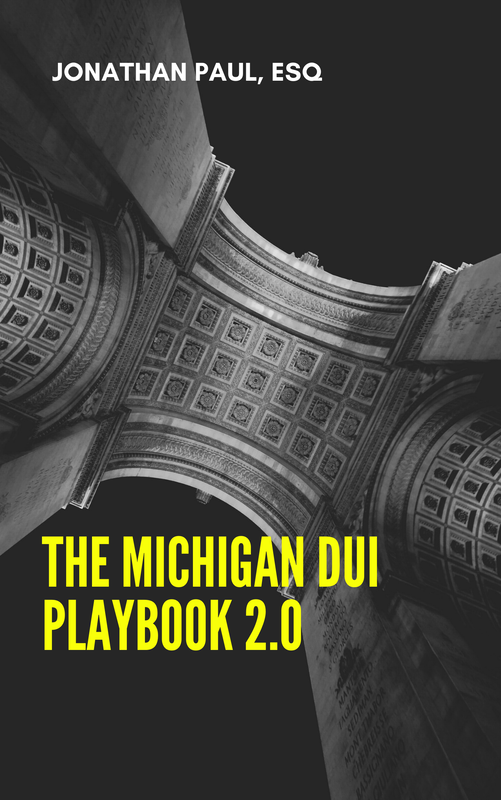|
Michigan Drunk Driving Defense
Operating Presence of Drugs In Michigan, the law states the following: A person, whether licensed or not, shall not operate a vehicle upon a highway or other place open to the general public or generally accessible to motor vehicles, including an area designated for the parking of vehicles, within this state if the person has in his or her body an amount of a controlled substance listed in schedule 1 under section 7212 of the public health code, 1978 PA 368, MCL 333.7212, or a rule promulgated under that section, or of a controlled substance described in section 7214(a)(iv) of the public health code, 1978 PA 368, MCL 333.7214. Because the usual breath test with the DataMaster only detects alcohol, the police will use a blood or urine test to test for the presence of a controlled substance in your body. The most popular drugs in someone's system for this offense are methamphetamines, marijuana, and cocaine. Michigan courts have ruled that marijuana metabolites (11-carboxy-THC) in the body is not a schedule 1 controlled substance under MCL 333.7212, thereby precluding a prosecution under MCL 257.625(8) for operating a motor vehicle with any amount of 11-carboxy-THC in the body. It should be noted that in a recent 2013 case, the court of appeals reinstated a charge under MCL 257.625(1)(a) that defendant operated a vehicle under the influence of a controlled substance, which in this case was Ambien (a sedative used to treat insomnia), even though the drug is classified as a controlled substance by administrative rule and not by statute. It should also be noted that a recent Michigan law stated that the Michigan Medical Marihuana Act supersedes MCL 257.625(8) and allows a registered patient to drive with indications of marijuana in his or her system so long as the patient is not otherwise under the influence of marijuana. Effective March 31, 2013, 2012 PA 543 amended §625 by adding the offense of operating under the influence of an “other intoxicating substance.” MCL 257.625(1)(a). Intoxicating substance is defined atMCL 257.625(25)(a). Here are the possible Michigan OWI Penalties for a first offender: - a $100 to $500 fine and one or more of the following: - Up to 93 days in jail. - Up to 360 hours of community service. - Driver's license suspension for 30 days, followed by license restrictions for 150 days. - Possible vehicle immobilization - Possible ignition interlock - Six points added to driving record - Driver Responsibility Fee ($1,000 for 2 consecutive years) Here are the possible Michigan OWI 2nd Offense Penalties - $200 to $1000 fine, and one or more of the following: - 5 days to 1 year in jail. - 30 to 90 days of community service - Driver's license revocation and denial for a minimum of 1 year (minimum of 5 years if there was a prior revocation within 7 years). - License plate confiscation. - Vehicle immobilization for 90 to 180 days, unless the vehicle is forfeited. - Possible vehicle forfeiture. - 6 points added to the offender's driving record. - Driver Responsibility Fee of $1,000 for 2 consecutive years. Comments are closed.
|
Click to Email Me Categories
All
|
Ann Arbor Office LocationPlymouth Office Location |
Representing DUI Clients in MichiganRepresenting clients charged with a DUI in Ann Arbor, Canton, Brighton, Howell, Saline, Adrian, Taylor, Plymouth, Northville, Westland, Ypsilanti, Pittsfield Towsnhip, Warren, Sterling Heights, Farmington, Pontiac, Romulus, Lansing, Novi, South Lyon, Southfield, Birmingham, Bloomfield Hills, Royal Oak, Troy, Rochester, Jackson, East Lansing, Garden City, Livonia, Dearborn, Detroit, St Clair Shores, Hazel Park, Ferndale, Madison Heights, Waterford, Milford, Shelby Township Clarkston, Oak Park, Berkley, Fraser, Sterling Heights, Clinton Township and others throughout Washtenaw, Wayne, Monroe, Jackson, Genesee, Macomb, Ingham, Lenawee, Livingston and Oakland County.
|







